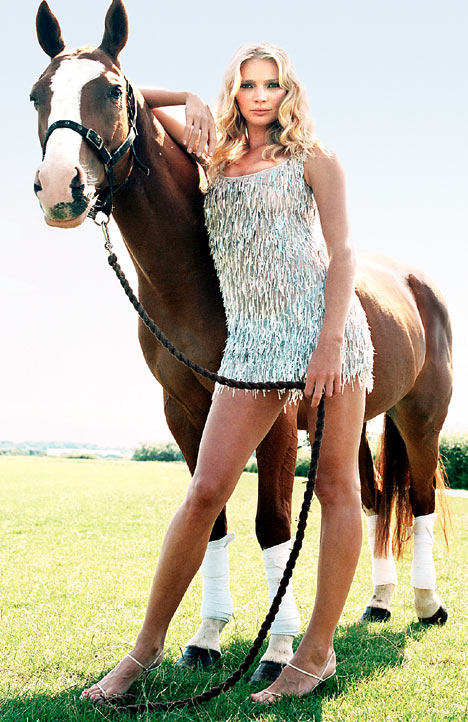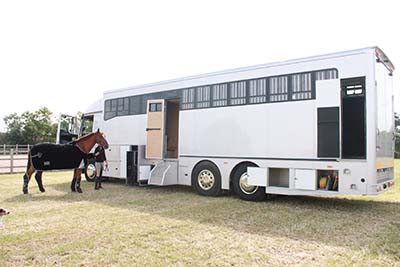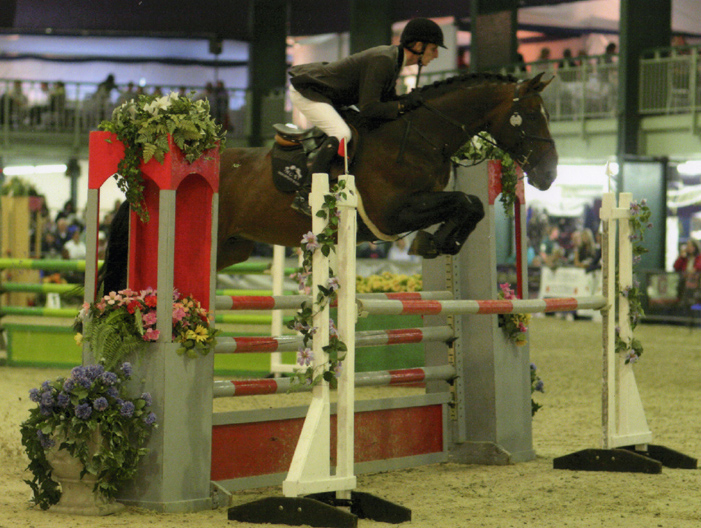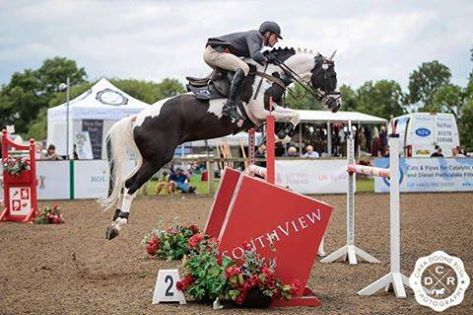Cartoon Horses - The Silver Brumby
The Silver Brumby series is a collection of children's books by Australian author Elyne Mitchell. They recount the life and adventures of Thowra, a magnificent pale brumby stallion, and his descendants, and are set in the Snowy Mountains region of Australia.The Silver Brumby
Bel Bel
A wise cream mare, mother of Thowra and good friends with Mirri, Storm's mother. Bel Bel runs with the stallion Yarraman, and in some cases is entrusted to go ahead and guide. Bel Bel, like Thowra, is fearful of people, although in her case because she had always been hunted for her unusual colouration. She showed her son Thowra the ways of the hunted life, passing all her wisdom to him, which in turn Thowra passed down to his mare, Boon Boon, his daughter, Kunama, and his grandson, Baringa. He also tried to pass it down to his son, Lightning, and one of his favorite mares, Golden. Bel Bel is ofte described as a 'lone wolf' and dies on her own on the Ramshead Range, after one final chase.
Thowra
Thowra is a creamy-silver stallion, son of the flaxen chestnut stallion Yarraman and the palomino mare Bel Bel. Being born in a storm, his dam named him the Aboriginal word for 'Wind' not only for the gale outside when he was born, but because she was worried he would have to be as fast as the wind to remain free. The majority of brumbies in the southern areas of Australia being black, bay, grey and chestnut, the appearance of a cream horse causes quite a stir among wild herds and humans alike. Thowra is met with open hostility from other horses, stallions in particular, while the men of the mountains quickly become obsessed with trying to capture him for his rarity. To survive, Thowra is forced to become more cunning than both horse and man. Though he is mentioned in nearly every Silver Brumby book, Thowra is only a main character in The Silver Brumby (and Silver Brumby Whirlwind), where he wins Golden for his mate, defeats the powerful stallion The Brolga, and becomes King of the Cascade Brumbies. However, there is always the ever-present threat of man, and at the end of the first novel, Thowra is forced to pull off a seemingly suicidal trick to stay free. There is some indication that he can shapeshift into a white hawk and a whirlwind. In the rest of the series, he is an ancestor of nearly all of the protagonists, and often helps them (and others) on their respective journeys.
Colouring
Due to the poetic license of the word ‘silver’ used to describe Thowra and his offspring it has misled some fans into believing that they are a pale grey or white, despite the fact they are described as ‘cream‘ or 'creamies' just as often. The reason why he is known as 'The Silver Brumby' is that during winter Thowra's cream coat is described as becoming much paler, and takes on an almost silver sheen. In combination with his silver mane and tail, Thowra's pale winter coat enables him to blend into the snowy landscape of his native mountains.
Though there is often much debate over the actual color of the horses starring in the Silver Brumby novels, Thowra is almost most certainly a very pale palomino, or "Isabella." The reference to him and his kin as being "creamies" as well as silver would help back this up. Isabella palominos can be extremely light and comparable to a true "cream" or off-white color. Also, in Australian horsemen language, a "creamy" is a word used to refer to a palomino of any of the mid to lighter shades of this dilution. The final clue is that a sire who is chestnut, combined with a palomino mother, is the perfect genetic recipe for palomino offspring since palomino is the presence of the cream gene over a chestnut base. Thowra would inherit the potential for chestnut from both his father AND mother. And his mother would provide the one creme gene he would need to share her own color. The fact that Yarraman is described as a light chestnut makes an "Isabella", (or pale palomino) foal even more likely. It could be argued that some of Thowra's own offspring with Golden (most certainly also a palomino) might be cremello (double-dilute creme and even more pale, with pink skin and blue eyes), but Thowra himself could only really be a palomino.
Other genealogical evidence from the books suggests that Thowra and the other "creamies", including his dam Bel Bel, daughter Kunama, son Lightning, and grandson Baringa are also Palominos, rather than cremello, which is the next most likely colouring. In 'The Silver Brumby', the special relationship between Thowra and his mother Bel Bel is due to their unusual shared colouring: Bel Bel's other foals by the chestnut stallion Yarraman are all chestnut.
In the cartoon series and the movie released in the mid-1990s, the 'creamies' are represented as Palominos, but earlier cover art shows the silver horses as greys (white) Original Cover Art. Despite the early representation of Thowra as a grey horse, there are several grey horses within the books, including Thowra's mate Boon Boon, and the grey stallion Cloud and his mate, which are considered as distinctly different in colour from the 'creamies'. The two mares which form the foundation for Baringa's herd in "Silver Brumby Kingdom", Dawn and Moon, are described as being a highly unusual colour which like the colour 'creamy' is distinguished from a grey horse, and is described simply as 'white'. These horses are likely to have been what is now called 'cremello' or possibly 'smoky cream', rather than 'dominant white', as they are both out of two grey parents (neither of their parents could therefore carry the dominant white gene). Their foals by the 'creamy' Baringa are described as 'creamies' ( a 50% likelihood of a mating between a Palomino and a cremello horse). Though there are other ways for pure white foals to crop up, like a foal who is a grey, and 'greys out' early in life. Another possibility is maximum sabino or maximum tobiano.
Thowra is described as siring only three foals which are creamy like himself, these being an unnamed creamy foal upon the grey mare Boon Boon (which would have greyed out over a few years), and the true creamies the filly Kunama and colt Lightning from the creamy mare Golden. Interestingly, Golden is described as being a 'creamy' like Thowra himself, yet is much more clearly identified as being a Palomino by her name, indicating that she is probably a darker, more traditionally 'golden' coloured Palomino, though clearly still identifiable as being the same colour as Thowra.
In 'Silver Brumbies of the South', Thowra muses upon the fact that outside of these three foals, he had had no silver foals. Instead, 'he had got many creamies with dark points who rarely went free, for the men always hunted them, and he had got taffies, and some strangely handsome duns'. A 'creamy with dark points' would be a buckskin, whilst 'Taffy' is the Australian term for what is sometimes called 'chocolate silver', or a brown coat with pale silvery mane and tale. These foals would have inherited one copy of the cream dilution gene from their sire, and their base colour from their mothers, but the unusual colours mentioned indicate that the 'silver' brumby carried other colour modifying genes in addition to the cream dilution gene, potentially including the silver dapple gene (which results in taffy), the dun gene or the flaxen gene.
Thowra's Herd
Boon Boon
Golden
Kunama (but once fully grown, joined Tambo's Herd.)
Koora
Cirrus
Yuri
unnamed black mare
unnamed grey mare
unnamed grey mare
unnamed chestnut daughter of arrow and the black mare
Many unnamed mares are also in his herd but are not mentioned in the story as they run separately with Storm's herd.
Silver Brumby's Daughter
Kunama
Thowra and Golden's daughter, Kunama, is a free-spirited and beautiful young filly, one of the first creamies begotten by Thowra. As a two year old, she is shown to possess a depth of intuition that is not shared by Thowra, her sire. This is perhaps partially because mares, without the luxury of a stallion's great strength and with the responsibility of foals at foot, must possess even greater wisdom than even the stallions of their herds if they are to remain free and wild. Kunama, having been trained in bushcraft by both Thowra and Boon Boon, is cautious and wary of men, but not even this caution is enough to keep her in Thowra's Hidden Valley when her interest is captured by a young, spirited black stallion with an unusual splash of white on his flank, named Tambo, who is the son of the racehorse 'Highland Lass.' In the wild excitement of running with another young horse, Kunama does not heed the warnings of the wiser bush animals, and runs in the mountains for far longer than she should, even returning to the Cascades with Tambo during the summer, despite it being 'a time a silver filly must remain hidden or fear capture.' Eventually, a boy and his father manage to capture the silver filly, with the intention of turning her into a stockhorse, but Kunama's longing for her freedom only succeeds in turning her into what the stockmen call a bad horse. Kunama is eventually given her freedom, and makes her way back to the Hidden Valley, remaining there with Tambo.
Kunama is full sister to Lighting and half sister to Jillamatong and Wanga, both creamies but with dark points. She is the dam of Baringa and an unnamed chestnut filly.
Silver Brumbies of the South-Silver Brumby Kingdom
Baringa
Nephew to Lightning and son of Kunama, Baringa is a true silver horse. Strong, swift and smart, he is truly Thowra's grandson. But when Thowra takes him to the southern lands he is only a yearling. When he adds the beautiful Dawn to his herd, life becomes even more dangerous. However, Baringa soon finds a secret canyon where he can keep his herd, and he learns how to fight just as well as his grandsire. Eventually, he becomes the Silver Stallion of Quambat Flat.
Baringa's name means 'dawn' or 'light' in an Aboriginal language. Baringa's story is told in the books Silver Brumbies of the South and Silver Brumby Kingdom. Baringa is also known to have the most beautiful herd anyone has seen in the south.
Baringa's Herd
Dawn: 'White and silver' Filly
Moon: 'White and silver' Filly
Yarolala: Chestnut flaxen filly. Throwback to Yarraman. Daughter of Son Of Storm.
Kalina: His first born son. First foal of Dawn. Born during a great flood.
A blue roan filly, daughter of White-Face.
A white mare who belonged to the black stallion previously.
Dawn
The first mare to join Baringa's herd, Lightning and Baringa first saw her dancing in a spiral of silver mist on Quambat Flat. Though Lightning tried many times to (unsuccessfully) win Dawn over, she decided to run with the more compassionate Baringa. In the events of Silver Brumby Kingdom, Dawn is separated from the herd by a terrible flood and Baringa goes to search for her, eventually finding her on a small island in the middle of a river. By this time she has borne Baringa's foal, whom they name Kalina. Of interest is the fact that, though Baringa already has a herd, it is heavily implied in Silver Brumby Kingdom that Dawn is the mare he loves most, even to the extent of leaving his herd to search for her. Dawn is Moon's half-sister, and the two seem to be great friends.
Moon
The second mare to join Baringa's herd, was called the hidden one and looks, and has the same hoofprint as dawn Moon originally followed The Ugly One. Her first foal was a snowy white filly.
Unnamed White Mare
One of the mares Thowra brought for Baringa. She was originally owned by the black stallion, but when Thowra decided to steal her, she went along willingly, yet slowly. She is described as 'lazy' and 'round'.
Unnamed Blue Roan Mare
One of the mares Thowra brought for Baringa. When Thowra was looking for Baringa, she was the only one of her herd to tell him anything.
Kalina
Son of Dawn and Baringa, Kalina was born when Dawn was swept by the river onto a small island, and it took Baringa days to find her. Though Baringa originally wanted to name Kalina after the flood, Dawn believed that their foal shouldn't be called something so terrible, and they named him Kalina - "for the marvellous beauty of the frost on snow".
Koora
Thowra's mare whom he left to run with Baringa. Had a silver colt with pale roan ears, Dilkara.ZZ[ ]Other books in the series [ ]Moon Filly (1968) The colt Wurring is devoted to the beautiful orphan filly Ilinga. But as she grows older and even more lovely, other stallions will challenge Wurring for her, including a mean iron grey stallion. Will the pair be separated? [ ]Ilinga One of the two protagonists of Moon Filly, Illinga is a strangely beautiful mare who is desperately trying to find Wurring (and vice-versa) despite the efforts of an evil iron-grey stallion. Colouring The description of Yuri's coat colour is strange since she is described as being both a dark chestnut, and as having a coat that "glows" at night by reflecting the moonlight. This calls to mind the metallic coats of Akhal-Teke's ...though this unusual metallic or "satin" sheen can occur in any horse breed. Champagne horses are also noted for this unusual sheen, though the occurrence of the rather new champagne colour in brumbies seems highly unlikely. It is heavily suggested by Elayne Mitchell that the "moon horses" are a special breed that is very refined and beautiful beyond their color alone.
Was she inspired by the rare Akhal-Teke? Or perhaps by Arabians? (a known influence on wild brumbies along with their descendants the Thoroughbreds.) Only the author herself would truly know that. Yuri's sire Wurring also may carry this glowing metallic sheen since he is described as glowing like the sun itself. Another horse whose coat colour is under debate is Ilinga. Although for the most part described to be a very dark brown, she is later (as she matures) described to have silver hairs running through her hair. Those with a better knowledge of horse genetics argue that she is much more likely a blue taffy, (a brown base taffy or silver dapple, and also the darkest of this colour dilute) because she is described with 'the colour of moonlight running across her back,' and strands of silver in her hair. This would certainly tie in better to explain the connection with the moon because of the colour contrast, and throughout the novels the colour of the character has been significant. But since since taffies are described in some of the brumby novels, it seems strange that the author would not describe them as such. Another possible fault in this theory is that she does not seem to have been born taffy, but rather turned taffy as she matured. This can happen with other horse colours, but a taffy should be born taffy. All this confusion over colour could simply be an over-analysis on the part of enthusiastic brumby book fans. Perhaps Elyne Mitchell herself, though clearly very knowledgeable about horses, was taking creative license in describing the colours of her horses, without giving any regard to how likely they were or the possible genetics. [ ]Silver Brumby books, in order of publication The Silver Brumby (1958) (ISBN 0006754708, paperback reprint) Silver Brumby's Daughter (1960) Silver Brumbies of the South (1965) Silver Brumby Kingdom (1966) Moon Filly (1968) Silver Brumby Whirlwind (1973) Son of the Whirlwind (1979) Snowy River Brumby (1980) Brumby Racer (1981) Silver Brumby, Silver Dingo (1993) Dancing Brumby (1995) Brumby Stories (1995) (compilation) Brumbies of the Night (1996) Dancing Brumby's Rainbow (1998) The Thousandth Brumby (1999) Wild Echoes Ringing (2003) [ ]Adaptations In 1993 the first book, The Silver Brumby, was adapted into a film of the same name. The film starred Russell Crowe, Caroline Goodall and Amiel Daemion. It was released as The Silver Stallion: King of the Wild in some countries. The series was also adapted into a children's cartoon TV series of the same name in 1994.[1] Running for 39 episodes, the series uses some character names, but at best is only a very loose adaptation of the books.



Show Jumping | Stallion | Anky Van Grunsven | Electric Bum Hoodie | British Show Jumping Horse T-Shirts, Hoodies, Custom Horse Shirts and Clothing Pictures



